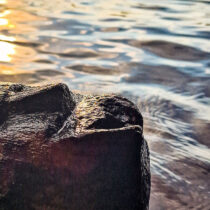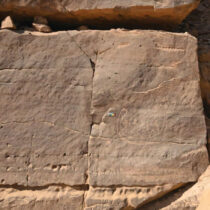Lidewijde de Jong (University of Groningen) and Rocco Palermo (University of Groningen) plan to organise a workshop at the next Annual Meeting of the Archaeological Institute of America, which will be held in Boston (USA) from January 4 to 7, 2018.
The proposed title is “New Directions in Seleucid Archaeology”. The archaeology of the Seleucid period in the Near East occupies a peculiar position in the academic community. Whereas regions on the edges of the Seleucid world –the Levant, Turkey, Central Asia– have seen a steady trickle of research projects, archaeologists of the Near East and Classical world have generally ignored its core (Syria and Mesopotamia). Yet, settlements, architecture, funerary traditions, pottery and generally material culture define the period between the late 4th and the early 1st c. BC as one of the earliest moments of intensive globalization in the ancient world. Processes of acculturation have been indeed assessed in historical research, but the archaeology of this period remains scanty and, at times, obscure as well as poorly defined in terms of methodological criteria. Its relevance is nevertheless substantial: the archaeological record offers the prospect to analyze the establishment of the Hellenistic impact and the dynamics generated by the encounter of the Greek culture with local tradition. It might indeed indicate hybridisation, but also aspects of preservation or developments that were not connected to Seleucid presence.
This panel aims to bring together scholars working on the Seleucid Near East, to showcase their projects, and to initiate debates about the future of research in this area. Numerous surveys and excavations that have been initiated in the last 5-10 years in Iraq and the Gulf are producing great quantities of material of Seleucid date. Now is the time to place Seleucid archaeology firmly on the map and in the research proposals of Near Eastern and Classical scholars.
The Organizing Committee invites scholars to discuss their projects and their thoughts on current issues and research trajectories. The panel consists of brief presentations (5-10 minutes) based on pre-circulated texts, thus leaving ample time for the exchange of ideas.
Particularly welcomed are papers that engage with recently collected data and/or focus on the contextualization and comparison of the known archaeological record within the area that goes from the Levantine coast to the Iranian plateau. As much of the core area of the region is currently inaccessible due to warfare, we are also interested in papers dealing with so-called ‘legacy-data’ (stemming from old projects) and the digital preservation of materials.
Paul Kosmin (Harvard University) will be the leading discussant at the panel. Texts will circulate among the speakers in advance, in order to maximise the discussion time in Boston. No more than 10 papers will be accepted.
Deadline for the submission of titles and abstracts is July 15, 2017.
Notification of acceptance from the AIA Organising Committee is expected in August 2017.
The panel is organized by TAMAM (The Research Group for the Archaeology of Mesopotamia from Alexander to Muhammad). TAMAM intends to bring together a dispersed community of scholars, and to discuss and promote new research trajectories. The first workshop was organized at the 2016 ICAANE in Vienna.
Further information at: https://rug.academia.edu/TAMAMResearchGroup





